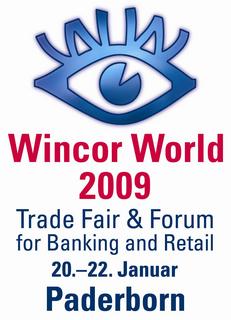Microsoft deserves some blame for the rapidly spreading Web virus
Published:
20 August 2003 y., Wednesday
Microsoft deserves some blame for the rapidly spreading Web virus -- but so do network administrators, ISPs, small businesses, and individual PC users. Compared to the images of sweaty Gothamites trudging across the Brooklyn Bridge in 95-degree heat during the massive power blackout, the MS Blaster worm now seems like a walk in the park.
Still, the latest worm to clog corporate networks and kludge the Net wreaked plenty of havoc in its own right. Internet security companies estimated losses from both downtime and wasted manhours in the hundreds of millions of dollars for U.S. companies. And Blaster-infected machines significantly impacted the Internet. The stream of bogus requests generated by the worm slowed DNS (domain name system) servers that act as the phone directories of the Internet. Compromised computers jammed up networks ranging from BMW in Germany to the Maryland Motor Vehicles Dept.
. Like the Slammer and CodeRed worms before it, Blaster targeted computers running Microsoft Windows 2000 and Windows XP operating systems. The worm carries a small program designed to exploit a chink in Redmond's digital armor and insert a file deep into the operating system in the Windows registry system. The registry is a database where the most basic rules that govern how a Windows machine behaves are stored and categorized.
Once Blaster inhabits the registry, it causes computers to restart without warning and to spew out thousands of connection requests per minute, in search of other machines to infect. The sheer volume of traffic caused enough digital noise to bog down networks.
Šaltinis:
businessweek.com
Copying, publishing, announcing any information from the News.lt portal without written permission of News.lt editorial office is prohibited.
The most popular articles
Software company announced new structure_ of it_s business.
more »
 According to the council's report, ATM-skimming fraud, which involves illicitly copying ATM card information stored on magnetic stripes, is increasing in Europe.
more »
According to the council's report, ATM-skimming fraud, which involves illicitly copying ATM card information stored on magnetic stripes, is increasing in Europe.
more »
 Building on the success of the recent HP TouchSmart PC for the home, HP today introduced the market’s first all-in-one, touch-enabled desktop PC for businesses.
more »
Building on the success of the recent HP TouchSmart PC for the home, HP today introduced the market’s first all-in-one, touch-enabled desktop PC for businesses.
more »
 Microsoft Corp. Chief Executive Officer Steve Ballmer announced the beta availability of the Windows 7 operating system as well as the availability of the latest version of the Windows Live, a suite of personal communications services and applications.
more »
Microsoft Corp. Chief Executive Officer Steve Ballmer announced the beta availability of the Windows 7 operating system as well as the availability of the latest version of the Windows Live, a suite of personal communications services and applications.
more »
 Cash-cycle management, branch optimization, sales/marketing consultation and automation, automated checkout and managed services are expected highlights for January's Wincor World 2009.
more »
Cash-cycle management, branch optimization, sales/marketing consultation and automation, automated checkout and managed services are expected highlights for January's Wincor World 2009.
more »
 We all need to better understand the media we are touched by daily, especially the young, says Austrian Socialist Christa Prets. MEPs backed her report on “media literacy in a digital world” on Tuesday.
more »
We all need to better understand the media we are touched by daily, especially the young, says Austrian Socialist Christa Prets. MEPs backed her report on “media literacy in a digital world” on Tuesday.
more »
 Since October, readers of the European Parliament's web pages have had access to RSS, which allows them to keep up-to-date with what is going on via a free subscription.
more »
Since October, readers of the European Parliament's web pages have had access to RSS, which allows them to keep up-to-date with what is going on via a free subscription.
more »
 Fox and Motorola collaboration results in first all-HD programming distribution strategy.
more »
Fox and Motorola collaboration results in first all-HD programming distribution strategy.
more »
 Wincor Nixdorf has won a contract to integrate its cash management solution, consisting of staff-assisted self-service terminals, software and comprehensive services, in the checkout zones and IT operations of Shell Deutschland’s 1,300 service stations.
more »
Wincor Nixdorf has won a contract to integrate its cash management solution, consisting of staff-assisted self-service terminals, software and comprehensive services, in the checkout zones and IT operations of Shell Deutschland’s 1,300 service stations.
more »
 The role that the internet can play in parliamentary democracy was explored this week when 400 people gathered in Brussels for the annual “e-Parliament conference”.
more »
The role that the internet can play in parliamentary democracy was explored this week when 400 people gathered in Brussels for the annual “e-Parliament conference”.
more »
 The EU’s new digital library brings vast treasure trove of historical documents, rare and valuable manuscripts and exquisite cultural artefacts to your desk.
more »
The EU’s new digital library brings vast treasure trove of historical documents, rare and valuable manuscripts and exquisite cultural artefacts to your desk.
more »